CKC 2023: New Futures for Creative Economies
Day 2
“Effortlessly efficient?” the labour of care relationships in the response of creative hubs to covid
Abstract
Local and hyper-local responses to covid from voluntary, charity and mutual aid groups, rooted in existing local support infrastructures, have been argued to be key in the response to the pandemic (British Academy, 2020). During the early days of the pandemic, community organisations, including cultural and creative hubs, were shown to mobilise their networks and relationships quickly and pool existing resources (Ormston, Heydecker and Coutts, 2020). This paper takes as its focus Creative Stirling, a hub located in the city of Stirling in Scotland, and examines the activities that took place during the early days of the pandemic and subsequent lockdowns, during which its tangible and intangible infrastructure was redeployed to address challenges in the local community. Being unconcerned with the usual tangles of bureaucracy, and in contrast to the response of more formal institutions such as the local authority, staff, creatives, volunteers and wider community organisations were able to use Creative Stirling’s assets and relationships to mobilise quickly. This response is indicative of the complex and relational forms of labour, both formal and informal, found within such grassroots organisations. The nuanced and highly collaborative nature of these relationships imbued with trust and care are very much at odds with the highly individualised, neoliberal conceptions of the cultural and creative industries sector (CCIs). While care has begun to be explored in relation to the everyday realities of working lives in the CCIs, it has been argued more recently that adopting a framework which takes account of care offers opportunities for alternative ways to conceive the value and costs of such activities (Wilson et al, 2020; Belifiore 2021) and how they might be reimagined post-covid (Banks, 2020; Wood and Skeggs, 2020). In this context, we examine the redeployment of efforts and assets at Creative Stirling which reflect the resilience of the network and were realised through long-term, careful relationships of trust. We also argue for the importance of remaining attentive to the – often overlooked – labour involved in creating and maintaining these networks of care. We further reflect on the current context of economic uncertainty and contraction of public support for culture that threatens to undermine such opportunities to redraw priorities and indeed jeopardises the infrastructure, relationships and assets that have been so critical during the pandemic.
References
British Academy (2020) The COVID Decade: understanding the long-term societal impacts of COVID-19 The Policy Report. Accessed at https://www.thebritishacademy.ac.uk/publications/shaping-the-covid-decade-addressing-the-long-term-societal-impacts-of-covid-19/
Banks, M (2020) ‘The work of culture and C-19’. European Journal of Cultural Studies 23: 648–654.
Belfiore, E. (2021) Who Cares? At What Price? The hidden costs of socially engaged arts labour and the moral failure of cultural policy. European Journal of Cultural Studies. Online First: 1 – 18.
Ormston, Heydecker and Coutts, (2020) Conversations with communities: Sharing common experiences from Scotland, England, Northern Ireland and Wales. Accessed at https://www.carnegieuktrust.org.uk/blog/conversations-with-communities-sharing-common-experiences-from-scotland-england-northern-ireland-and-wales/
Wilson, N., Gross, J., Dent, T., Conor, B. and Comunian, R. (2020) Re-thinking Inclusive and Sustainable Growth for the Creative Economy: A Literature Review. DISCE Publications, accessed at : https://disce.eu/wp-content/uploads/2020/01/DISCE-Report-D5.2.pdf
Wood, H, Skeggs, B (2020) ‘Clap for carers? From care gratitude to care justice’. European Journal of Cultural Studies 23: 641–647.
Biographies
Dr.Katherine Champion is a Senior Lecturer in Media and Communication and Programme Director for the MSc Media Management at the University of Stirling. She is an interdisciplinary scholar of the Cultural and Creative Industries whose work is concerned with the intersections of creativity, place and work. She is currently leading the RSE-funded project ‘Mapping Ecologies of Care in Creative Hubs during Covid-19’ and is particularly interested in creative and cultural work beyond global centres of activity.
María A. Vélez-Serna is a Lecturer in Film and Media at the University of Stirling, and a film school graduate from Universidad Nacional de Colombia. Her Leverhulme Early Career Fellowship focused on pop-up cinema exhibition and she was the Postdoctoral Researcher on the Early Cinema in Scotland project. She is currently PI on the RSE-funded project ‘Representing energy transitions: Colombian and Scottish coalmining on film’.
Dr Susan Berridge is a Senior Lecturer in Film and Media at the University of Stirling. Dr Susan Berridge is a Lecturer in Film and Media at the University of Stirling. She is currently Co-I on the British Academy-funded research, led by Dr Tanya Horeck of Anglia Ruskin University, which explores the role of the intimacy coordinator in terms of facilitating new depictions of sex and consent on UK television drama. Previous research has focused on televisual representations of gender, sexuality and sexual violence as well as gender inequalities relating to caring responsibilities within the wider screen sector.


